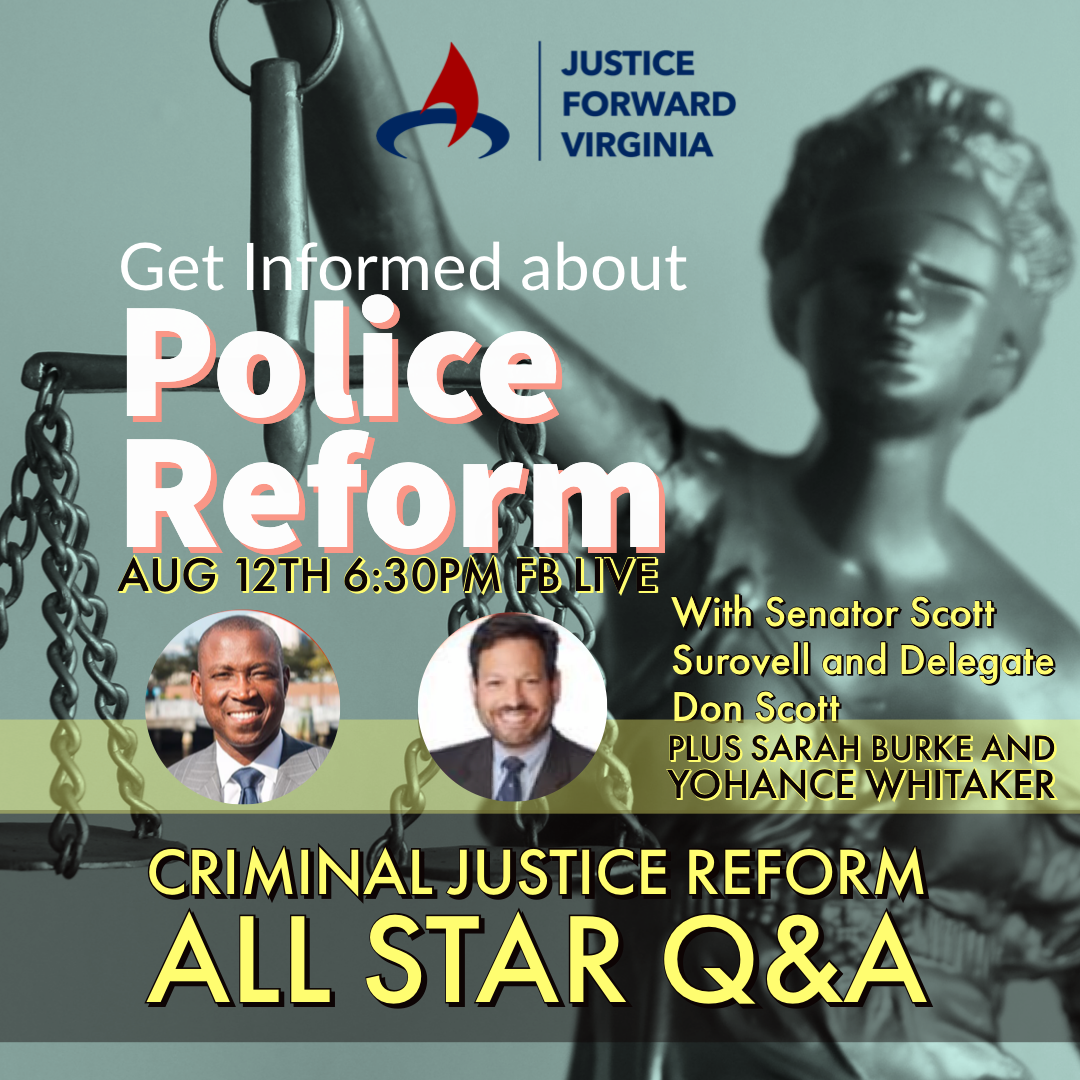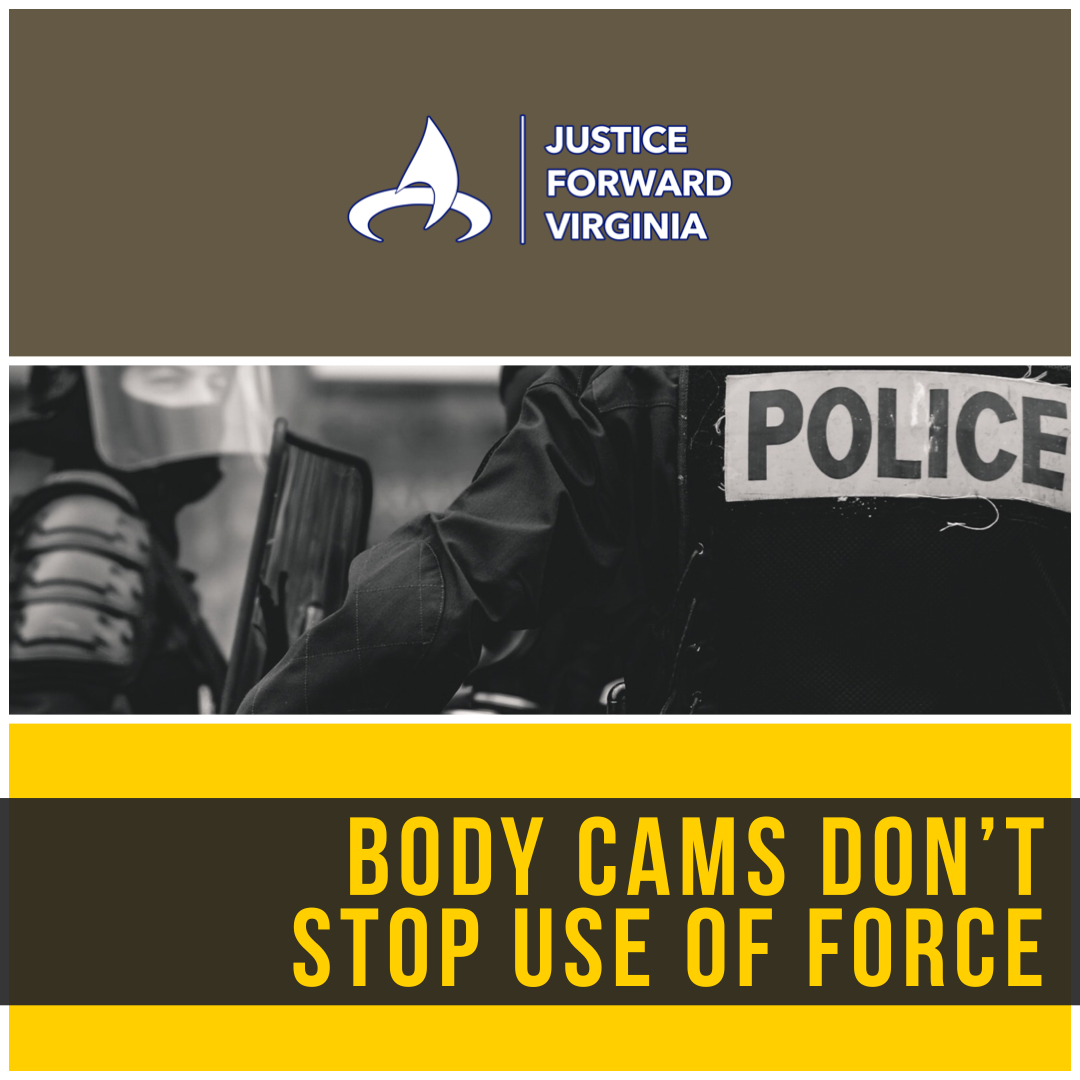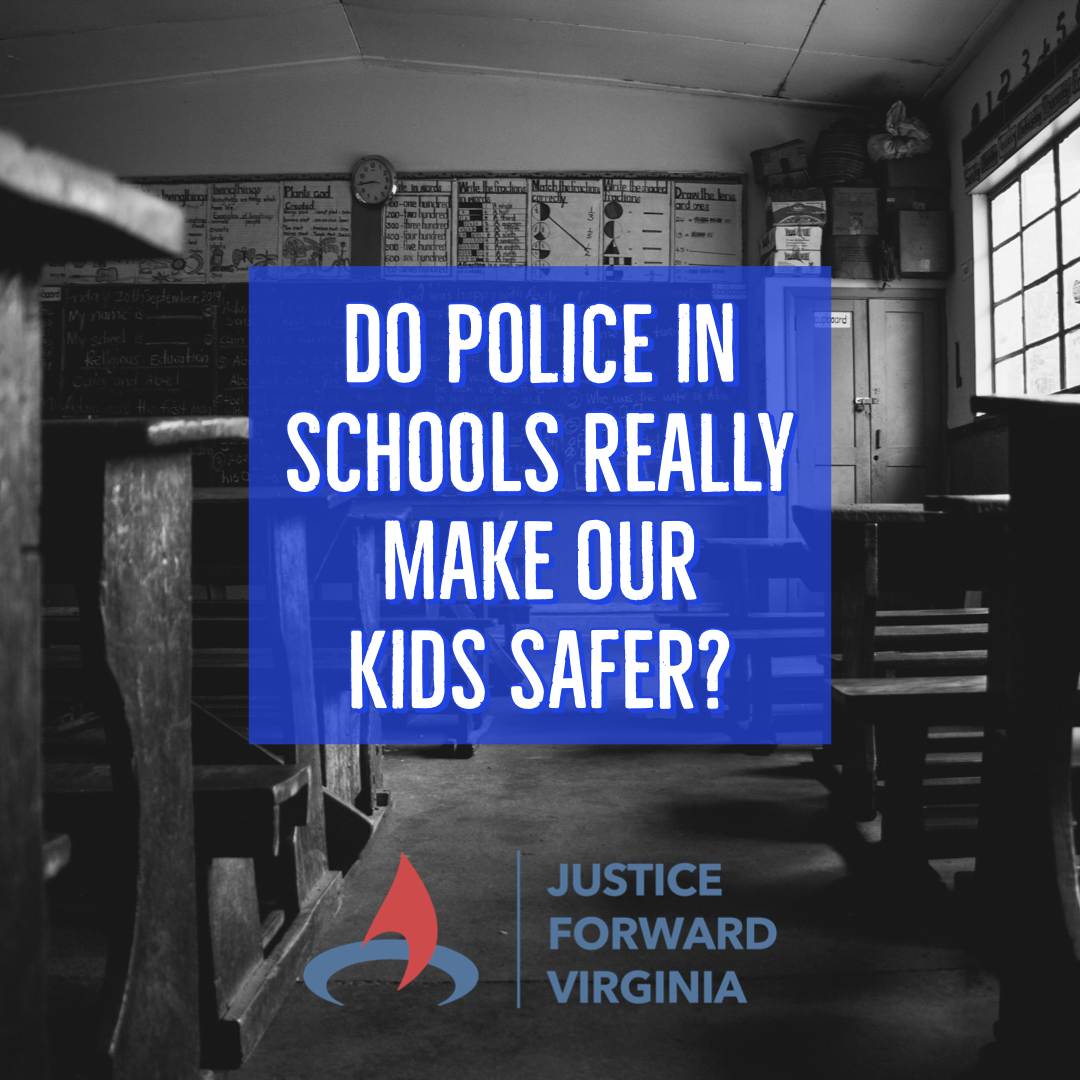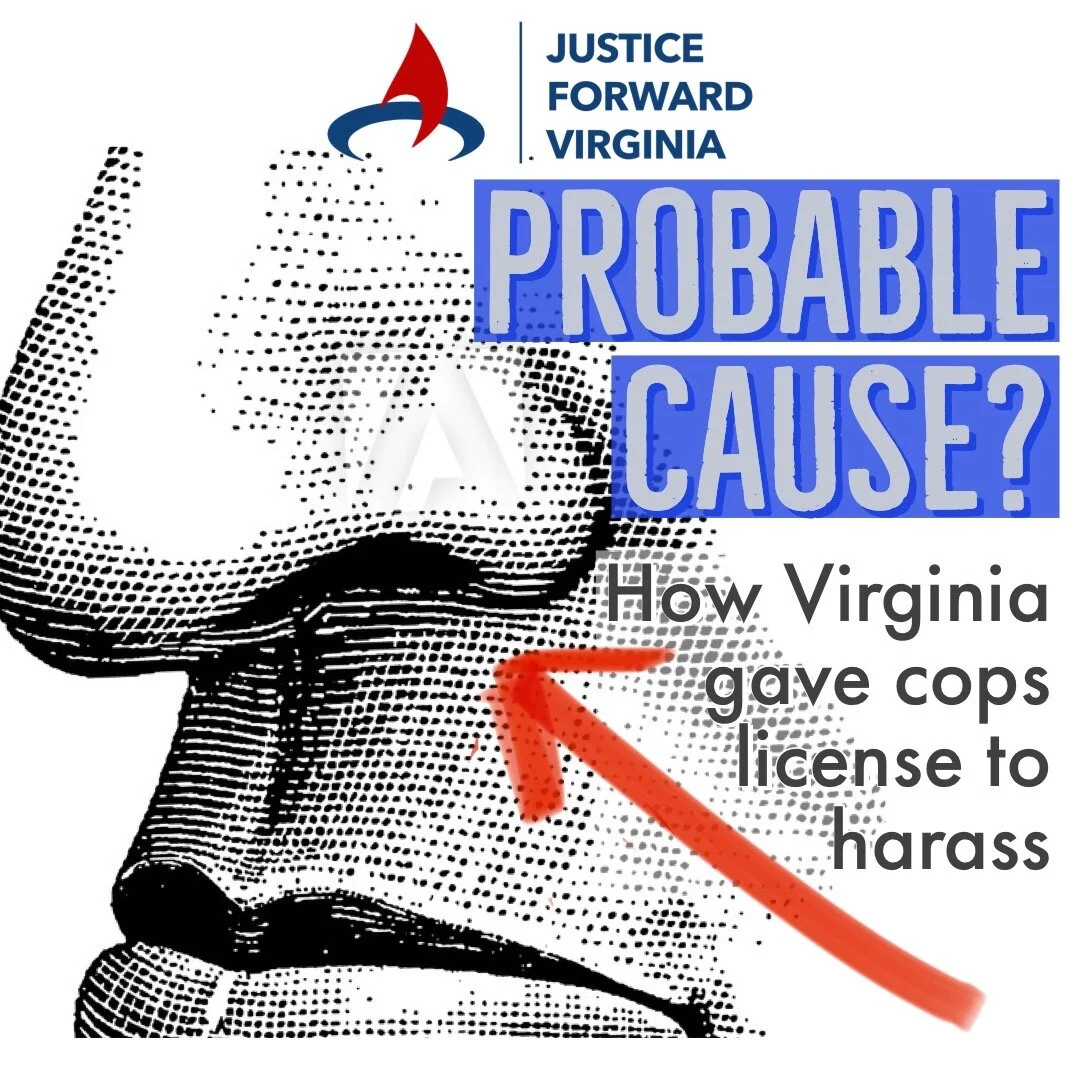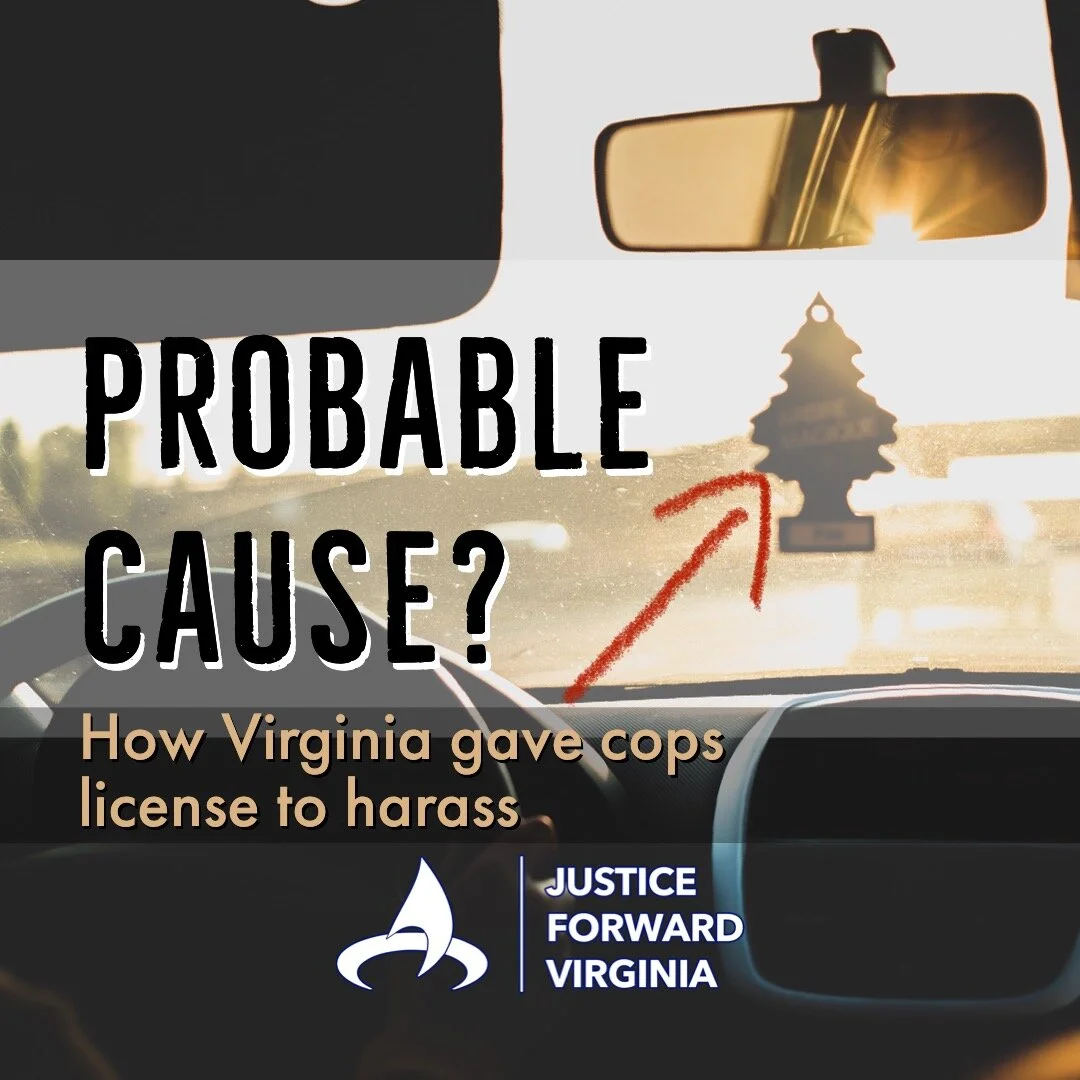Still have questions about police reform as we approach the special legislative session? Tune in on August 12 from 6:30-8:00pm when we're bringing back some of the most popular guests from our "Get Informed About Police Reform" explainer series!
Read MoreWhile many are calling for their increased use, the promise of body worn cameras is turning out to be overstated. Evidence shows that body worn cameras don’t significantly change police behavior or reduce use of force by police. Instead, the benefit of BWCs is that they provide documentation after the fact, rather than changing police behavior or reducing racial disparities in policing.
Read MoreIn Virginia approximately 55% of schools have police officers assigned to then, about twice as many as in 2020. The increases were implemented with the the hopes that having police in school would make our kids safer, but the real impact seems to be that more and more students are being referred to police for disciplinary problems that could be handled at school. The overreliance of policing in schools has led to victimization and violence against our children, especially Black children, and has ultimately led to children being less safe.
Read MoreOn July 28, join Professor Julie McConnell and public defenders Brad Lindsay and Ashley Shapiro for an expert panel on why school resource officers are so problematic, and why Virginia's assault on police statute is much more controversial than the name would imply.
Read MorePart III of Justice Forward Virginia’s “explainer” series on criminal justice issues is Civilian Oversight Done Right: Transforming Policing Through Robust Civilian Review. We've assembled almost ALL of the statewide experts on this subject: Fairfax NAACP, Legal Aid Justice Center, and the Richmond Transparency and Accountability Project. Don’t miss this one!
Read MoreIn Virginia, law enforcement operates under a shroud of secrecy with far less democratic accountability than our other public institutions. Civilian Oversight Bodies (sometimes referred to as Civilian Review Boards or “CRBs”) in Virginia are limited in power under current state law. Police departments are able to control the Oversight Bodies’ access to the data, evidence, witnesses, and personnel files that they need for meaningful oversight.
Read More“I smell marijuana.”
Three magic words with the power to make constitutional rights disappear.
Merely uttering those three magic words gives any police officer in Virginia the power to search your house, your car, your briefcase, your pockets, or even your body, without a warrant or your consent.
Read MorePretextual policing is the practice of stopping someone for a minor traffic violation in order to conduct investigations unrelated to the reason for the stop. In Virginia, there is an extraordinarily low standard under the law, and it’s often abused.
Read MoreVirginia’s Assault on a Law Enforcement Officer statute makes what is often a minor offense a felony and has a mandatory minimum sentence of 6 months in jail. This statute’s elevated punishment structure has other troubling effects on the criminal justice system: (1) It gives the police officer extraordinary power to punish those who insult or otherwise defy them, including people of color who are victims of excessive force, and (2) It intimidates the accused into taking plea offers in cases where the accused would prefer to take the case to trial.
Read MoreThankfully, Virginia lawmakers have a second chance in 2020 to make good on campaign promises to make meaningful changes to our criminal justice system. Leaders of both chambers of the General Assembly have confirmed that fundamental reforms simply cannot wait.
Read MoreWith police reform in the spotlight, there have been dozens of criminal justice reform events recently. Unfortunately, too few of them help laypeople understand the issues the way advocates do. We’re here to help! Join JFV, Sen. Scott Surovell and Del. Don Scott on July 7.
Read More

